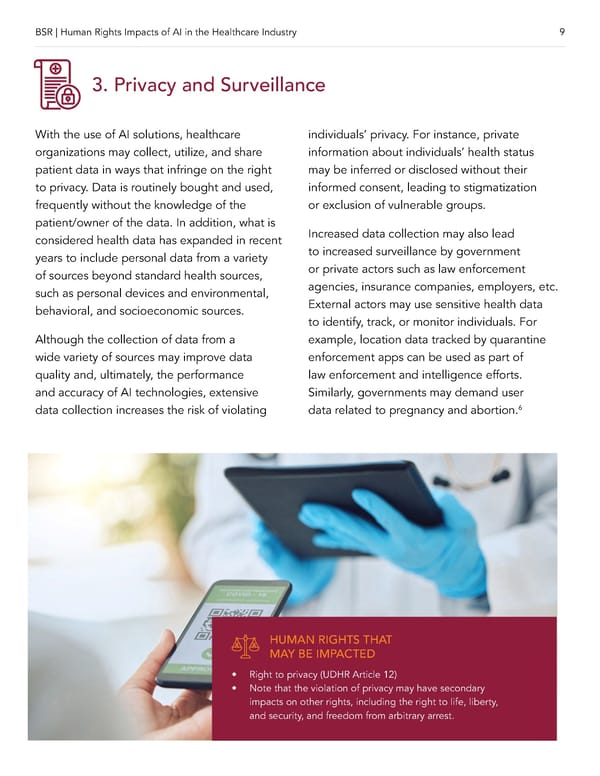BSR | Human Rights Impacts of AI in the Healthcare Industry 9 3. Privacy and Surveillance With the use of AI solutions, healthcare individuals’ privacy. For instance, private organizations may collect, utilize, and share information about individuals’ health status patient data in ways that infringe on the right may be inferred or disclosed without their to privacy. Data is routinely bought and used, informed consent, leading to stigmatization frequently without the knowledge of the or exclusion of vulnerable groups. patient/owner of the data. In addition, what is considered health data has expanded in recent Increased data collection may also lead years to include personal data from a variety to increased surveillance by government of sources beyond standard health sources, or private actors such as law enforcement such as personal devices and environmental, agencies, insurance companies, employers, etc. behavioral, and socioeconomic sources. External actors may use sensitive health data to identify, track, or monitor individuals. For Although the collection of data from a example, location data tracked by quarantine wide variety of sources may improve data enforcement apps can be used as part of quality and, ultimately, the performance law enforcement and intelligence efforts. and accuracy of AI technologies, extensive Similarly, governments may demand user 6 data collection increases the risk of violating data related to pregnancy and abortion. HUMAN RIGHTS THAT MAY BE IMPACTED • Right to privacy (UDHR Article 12) • Note that the violation of privacy may have secondary impacts on other rights, including the right to life, liberty, and security, and freedom from arbitrary arrest.
 AI and Human Rights in Healthcare Page 10 Page 12
AI and Human Rights in Healthcare Page 10 Page 12